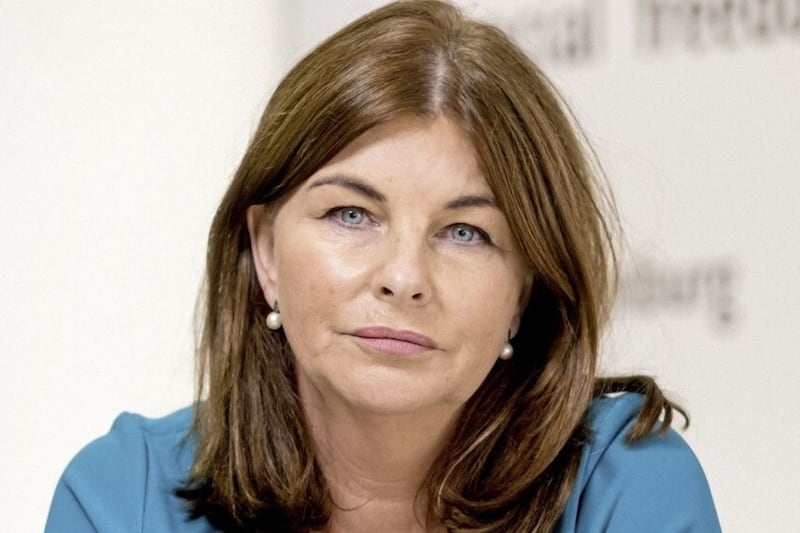The heads of two Stormont departments have described the delivery of British government funds that are designed to replace EU money after Brexit as "fragmented" and a "highly sub-optimal way to serve the people of Northern Ireland".
The criticisms are contained in a letter to the chair of a Westminster committee from Neil Gibson and Mike Brennan, permanent secretaries at the Department of Finance and Department for the Economy, respectively.
They wrote to Clive Betts, chair of the Levelling Up, Housing and Communities Committee, last month ahead of an 11th hour announcement of money to replace the European Social Fund, which provided around £40 milion a year for hundreds of community organisations.
The announcement of £57m from the UK Shared Prosperity Fund (UKSPF) over the next two years for groups who help the long-term unemployed came on the last day of the financial year and followed months of uncertainty.
Many of the charities and community groups who previously relied on the European money have said they will be forced to close or cut services because their application for renewed funding was rejected.
The two permanent secretaries said the "uncertainty" around the allocation of the UKSPF economic inactivity intervention had "already had serious consequences for the bodies that previously relied on the ESF to fund their operations".
"The Department for the Economy has already been informed by at least one organisation that it will no longer exist from April 1 2023 and we have been made aware that many of the staff in other delivery organisations have left voluntarily due to the uncertainty around future support with others placed on protective notice," they wrote.
"Those impacted groups are now publicly expressing their anxiety on their ability to continue service provision for vulnerable groups and any further delay to the flow of SPF funding to those groups previously reliant on ESF funding could have further serious consequences for their continued viability."
The pair also raise concerns about why a second round competition for Levelling Up funds was launched only in Britain.
The department heads sign-off with a scathing criticism of the process.
"Finally, in a world of finite resources, the provision of fragmented funding allocations that may not align with local priorities and a continued lack of clarity on how projects are selected remains, in our view, a highly sub-optimal way to serve the people of Northern Ireland," they said.
SDLP MP Claire Hanna said the letter echoed warnings about the "catastrophic impact the end of ESF funding would have for community and voluntary groups".

“It was clear from the outset that the British government were giving little consideration to the unique needs of groups here and the important role they play in our communities. The result has been groups closing their doors, job losses and communities left without vital resources that supported people in a wide variety of ways," she said.






